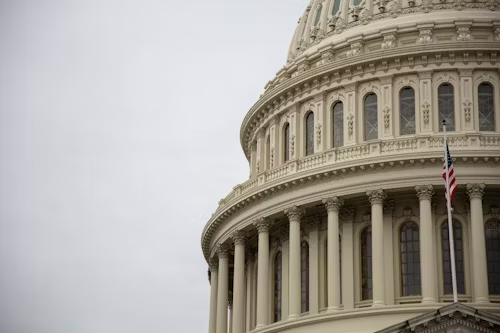The Republican Party has claimed control of the Senate, reshaping the U.S. political landscape. This shift could boost a potential Donald Trump presidency or create challenges for Kamala Harris if she wins. Republicans capitalized on vulnerable Democratic seats, flipping enough to secure a majority. The Senate, previously split 51-49 in favor of Democrats, now belongs to the GOP after Tuesday’s election.
Key races favored the Republicans throughout the campaign, with additional seat flips possible as final votes are tallied. This victory marks a significant moment for legislative dynamics and the future of U.S. governance.
Implications for Policy and Leadership
Legislative Battles Ahead
The Senate’s new Republican majority will shape legislative priorities for the next administration. If Trump wins, the GOP-controlled Senate could fast-track his policies on taxes, healthcare, and energy. Conversely, a Harris presidency would likely face obstacles in advancing major initiatives and confirming Cabinet or judicial appointments.
The House of Representatives remains undecided, leaving uncertainty over tax reforms and social spending. However, one certainty from Tuesday’s results is the end of Democratic control in the Senate, ushering in the first Republican majority leader in over a decade.
Mitch McConnell’s Exit Sparks Leadership Contest
Senate Minority Leader Mitch McConnell announced he will step down after leading the GOP caucus since 2007. This decision triggers a competitive race for his successor. Senators John Thune, John Cornyn, and Rick Scott are top contenders, with the leadership election scheduled for next week.
Democratic Senator Chuck Schumer, the current Senate Majority Leader, is set to transition to Minority Leader. This leadership shift signals a new chapter for both parties in the Senate.
Confirmation Showdowns: Trump vs. Harris
The Senate’s exclusive role in confirming presidential appointees will intensify partisan battles. The next president may nominate key Cabinet members and federal judges, including Supreme Court justices. With four justices nearing 70, these nominations could significantly shape the judiciary. A Republican Senate would ease Trump’s path for confirmations but could stymie Harris’s efforts to secure her nominees.
Republican Success in Key States
Flipping Seats for a Majority
Republicans entered the election defending 11 Senate seats compared to Democrats’ 23. They retained all 11, including in swing states like Texas and Florida. In Ohio, Republican Bernie Moreno defeated incumbent Democrat Sherrod Brown, securing a crucial victory. In Nebraska, Senator Debbie Fischer’s win over independent Dan Osborn solidified the GOP majority.
Opportunities for Additional GOP Gains
Republicans could still expand their majority. In Montana, Tim Sheehy led Democratic Senator Jon Tester in early returns. In Wisconsin, Eric Hovde had a slight lead over two-term Democrat Tammy Baldwin. In Michigan, Republican Mike Rogers led Democrat Elissa Slotkin with half the votes counted.
Defending Competitive Seats
The GOP successfully defended Senate seats targeted by Democrats. In Texas, Senator Ted Cruz defeated Rep. Collin Allred, while in Florida, Senator Rick Scott beat Rep. Debbie Mucarsel-Powell. These victories underscored Republican resilience in competitive states.
Democrats’ Single Victory in Maryland
While Republicans dominated key races, Democrats claimed a victory in Maryland. Angela Alsobrooks defeated former Republican Governor Larry Hogan in a competitive race. Hogan’s popularity made the contest closer than expected, but Maryland ultimately stayed in the Democratic column.
A New Era of Senate Leadership
The Republican-controlled Senate will shape legislative priorities and judicial confirmations for the next administration. Whether Trump or Harris takes office, the GOP majority ensures significant influence over U.S. governance. The upcoming Republican leadership election will set the tone for the party’s strategy.
As the political landscape evolves, the Senate’s shift highlights the critical role of Congress in shaping the nation’s future. Both parties now prepare for a new chapter in U.S. politics.


